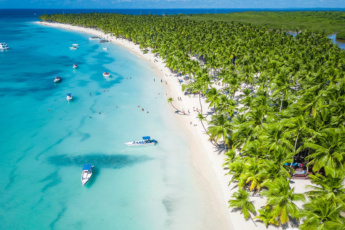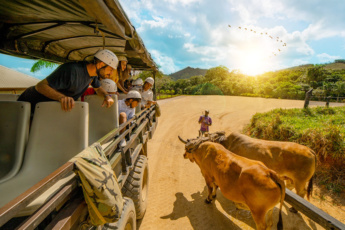Overcoming Jet Lag and Travel Fatigue: Tips for a Comfortable Arrival
Understanding Jet Lag: What Happens to Your Body

Overcoming Jet Lag and Travel Fatigue: Tips for a Comfortable Arrival
Jet lag isn’t just a pesky inconvenience; it’s a fascinating and complex interplay between our biological clock and our travel habits. Understanding the science behind it can help us better prepare for and recover from our long journeys.
1. Circadian Rhythms Explained
At the core of jet lag lies our body’s internal clock known as the circadian rhythm. This biological clock operates on a roughly 24-hour cycle, regulating sleep and wakefulness in response to environmental cues like light and darkness. When we travel across time zones, this intricate system gets thrown off balance. Imagine your body as a finely tuned orchestra; when one instrument plays out of sync, the entire performance can suffer.
Circadian rhythms are driven by the suprachiasmatic nucleus (SCN) of the hypothalamus, which is sensitive to light. When we suddenly expose ourselves to a new time zone, our SCN struggles to adjust, leading to disruptions in our sleep-wake cycle. This misalignment can lead to feelings of tiredness during the day and wakefulness at night, creating the perfect storm for jet lag.
2. Physical Symptoms of Jet Lag
Travelers often experience a range of physical symptoms as their bodies struggle to adjust. Some of the most common complaints include:
- Fatigue: The overwhelming feeling of tiredness can leave you dragging your feet, making it hard to enjoy your destination.
- Headaches: Dehydration and stress can contribute to tension headaches, often exacerbated by the cabin pressure during flights.
- Digestive Issues: Changes in time zones can disrupt your eating schedule, leading to symptoms like bloating and constipation.
- Disrupted Sleep Patterns: Many travelers find it difficult to fall asleep or stay asleep, leading to restless nights.
It’s crucial to listen to your body during these times. Rest, hydration, and a balanced diet can go a long way in alleviating these physical symptoms.
3. Mental and Emotional Effects
The cognitive and emotional impacts of jet lag can be just as challenging as the physical symptoms. Travelers often report experiencing:
- Mood Swings: Irritability and anxious feelings can arise as your body struggles to adapt, leaving you feeling out of sorts.
- Cognitive Impairment: Difficulty concentrating and forgetfulness can make it hard to engage with your travel companions or explore new surroundings.
- Reduced Motivation: The fatigue and disorientation can sap your enthusiasm for activities that you were looking forward to.
To combat these mental hurdles, practicing mindfulness techniques and engaging in light physical activities can help lift your spirits and clear your mind. Remember, it’s all part of the adventure, and overcoming these challenges can lead to richer travel experiences.
Pre-Travel Strategies to Minimize Jet Lag
Traveling to distant destinations can be an exhilarating experience, but the challenge of jet lag often looms large. It’s wise to take proactive measures before you embark on your adventure. By preparing your body in advance, you can significantly mitigate the effects of jet lag and enhance your travel experience. Here are some strategies to consider before your upcoming journey.
1. Gradual Adjustment of Sleep Schedule
One of the most effective ways to combat jet lag starts before you even board your flight. Gradually shifting your sleep schedule in the days leading up to your departure can help your body acclimate to the new time zone. Here are some practical steps to consider:
- Shift your bedtime: If you’re traveling east, try going to bed an hour earlier each night, and if you’re heading west, push your bedtime back by an hour. This gradual adjustment can help your body adapt without the shock of a complete overnight change.
- Wake up early or late: Similarly, adjust your wake-up time to match your destination. This will align your circadian rhythm with the new time zone, making it easier to fall asleep upon arrival.
- Use light exposure: Seek natural light in the morning if you’re waking up early, or avoid it if you’re trying to sleep in. Light exposure helps regulate your internal clock.
By starting this adjustment process a few days before your trip, you set the stage for a smoother transition.
2. Staying Hydrated and Nutrition Tips
Hydration plays a crucial role in combating travel fatigue and jet lag. Air travel can be dehydrating, and maintaining proper hydration levels before and during your flight is essential. Here are some hydration and nutrition tips to keep in mind:
- Drink plenty of water: Aim for at least 8-10 cups of water daily leading up to your departure. This helps maintain hydration levels and keeps your energy up.
- Limit caffeine and alcohol: Both substances can disrupt your sleep patterns and lead to increased dehydration. If you can, reduce your intake a few days before traveling.
- Focus on nutrition: Incorporate foods rich in magnesium and potassium, like bananas, nuts, and leafy greens, into your diet. These nutrients can help reduce fatigue and support muscle function.
By prioritizing hydration and nutrition, you can improve your overall well-being, making your travel experience more enjoyable.
3. Smart Timing for Flights
Choosing the right flight times can significantly influence your experience with jet lag. Here are some top tips for selecting flights that can help lessen the impact of time zone changes:
- Opt for overnight flights: If possible, book a night flight that allows you to sleep during the journey. This way, you arrive at your destination feeling more refreshed.
- Consider the layover: If your trip includes layovers, look for options that allow you to break up your travel time. This can help reduce fatigue and allow for rest in between flights.
- Arrive in the early evening: If your schedule allows, choose flights that land in the early evening. This gives you the chance to have a light meal, spend some time outdoors, and go to bed at a reasonable hour to kickstart your adjustment.
By carefully selecting your flight times, you can set yourself up for success and minimize the effects of jet lag.
The provided information is for informational purposes only and may not be up-to-date. Please verify with the institution directly.
Ready to make your travel experience even more enjoyable? Check out our top travel excursions that can add excitement to your journey!
Our Best Tours in Punta Cana

Saona Island Excursion - Caribbean Paradise
from $75 Read more
Swimming with Dolphins in Punta Cana - Top Adventure 2026 (50 minutes)
from $155 Read moreIn-Flight Tips for a Smoother Journey
Traveling can be exhilarating, but it often comes with the burden of jet lag and fatigue. By implementing effective strategies during your flight, you can enhance your comfort and pave the way for a smoother arrival at your destination.
1. Choosing the Right Seat
One of the first steps to ensuring a comfortable flight experience begins with selecting the right seat. The location of your seat can significantly impact your overall comfort during the flight.
- Window seats provide a place to lean against, allowing for more restful sleep. Plus, they offer a great view!
- Aisle seats grant easier access to the restroom and the ability to stretch your legs more freely, which can be a boon on long flights.
- Avoid seats near the galley or lavatories, where noise and traffic can disrupt your peace.
Consider using seat selection tools like SeatGuru to find the best options on your chosen airline. Remember, comfort is key when battling travel fatigue and jet lag!
2. Sleep Aids and Comfort Items
When it comes to in-flight comfort, sleep aids and comfort items can work wonders. Packing the right gear can help you catch some much-needed Zs and arrive feeling refreshed:
- Travel pillows are essential for neck support, preventing stiffness and discomfort during your flight.
- Sleep masks block out light, creating a calming environment conducive to sleep.
- Noise-canceling headphones can drown out the hum of the plane and chatter from fellow passengers, allowing you to relax.
Another great addition is a lightweight blanket or large scarf, which can provide warmth and comfort, making it easier to sleep during your flight.
3. Stretching and Movement Exercises
Long periods of sitting can lead to stiffness and decreased circulation, which can exacerbate feelings of fatigue. Incorporating stretching and movement exercises during your flight can counteract these effects:
- Seated stretches: While seated, try neck rolls and shoulder shrugs to relieve tension.
- Leg stretches: Stand up and gently stretch your legs by lifting them behind you or doing calf raises in the aisle.
- Walking: Take brief walks up and down the aisle every couple of hours to promote circulation.
Engaging in these simple exercises can keep your body feeling good and reduce the impact of travel fatigue. Plus, it gives you a chance to mingle with fellow passengers!
Our Best Tours in Punta Cana

Saona Island Excursion - Caribbean Paradise
from $75 Read more
Swimming with Dolphins in Punta Cana - Top Adventure 2026 (50 minutes)
from $155 Read moreWith your jet lag managed and your travel fatigue at bay, why not explore some exciting adventures? Check out our curated tours in Punta Cana that promise unforgettable experiences!
Post-Arrival Adjustments for Quick Recovery
After the long hours of traveling, your arrival at a new destination should be a time for excitement and exploration. However, without the right adjustments, you might find yourself battling the effects of jet lag instead. Here’s how to make the most of your arrival and recover quickly!
1. Light Exposure and Its Benefits
Upon landing, one of the most effective and natural ways to reset your internal clock is through light exposure. Natural light plays a crucial role in regulating your circadian rhythms, and strategically soaking up sunlight can help your body adapt to the new time zone more swiftly.
Here are some actionable tips to maximize light exposure:
- As soon as you arrive, spend time outdoors if possible. A brisk walk in the sunlight can do wonders for your mood and energy levels.
- Try to align your exposure to daylight with the local time. If it’s daytime, resist the urge to head indoors immediately.
- If you arrive in the evening, consider using bright, artificial lights to simulate daylight, helping your body recognize that it’s time to be alert.
2. Napping Wisely
While it may be tempting to crash for hours upon arrival, napping wisely is vital for making a smooth transition without disrupting your sleep schedule. Here’s how to make those naps count:
- Limit your naps to 20-30 minutes. This short duration can help you feel refreshed without sliding into deep sleep, which can make waking up even more challenging.
- Timing is everything! Aim to nap in the early afternoon. This timing can boost your alertness without interfering with your nighttime sleep.
- Find a quiet spot to rest, shielding yourself from distractions. Use an eye mask or earplugs if necessary to create a peaceful environment.
3. Hydration and Nutrition After Travel
Staying hydrated and consuming the right foods is crucial for your recovery. After a long flight, your body is likely dehydrated, which can exacerbate feelings of fatigue and sluggishness. Here’s how to replenish and refuel:
- Drink plenty of water upon arrival. Aim for at least two glasses to rehydrate your system effectively.
- Opt for light meals rich in nutrients. Foods high in protein, fiber, and healthy fats can provide sustained energy. Consider dishes such as salads with lean proteins, whole grains, and a variety of vegetables.
- Limit caffeine and alcohol intake after landing. While they might seem like quick fixes, they can disrupt your sleep and hydration levels, making recovery harder.
Our Best Tours in Punta Cana
With these helpful strategies, you can minimize the discomfort of jet lag and begin your adventure with energy and enthusiasm. Remember, the key is to listen to your body and give it the care it needs to adjust smoothly to new surroundings!
Mental Strategies for Coping with Travel Fatigue
Traveling can be exhilarating, but let’s face it—nothing takes the excitement out of a new adventure like the fatigue that often follows. Jet lag and travel fatigue can sap your energy and enthusiasm, making it essential to have a game plan for mental recovery. Here are some effective strategies to help you cope and keep the good vibes flowing.
1. Mindfulness and Relaxation Techniques
When you arrive at your destination, your mind might be racing with excitement or overwhelmed by fatigue. Mindfulness techniques can help you regain focus and calmness. Simple practices such as deep breathing, meditation, or even guided imagery can significantly reduce stress and promote relaxation. For instance:
- Deep Breathing: Inhale deeply through your nose for a count of four, hold your breath for four, and exhale through your mouth for a count of four. Repeat this cycle a few times to clear your mind.
- Meditation: Even a quick five-minute session can help center your thoughts. Find a quiet spot, close your eyes, and focus on your breath or a positive affirmation.
- Guided Imagery: Visualize a peaceful setting, like a serene beach or a tranquil forest, and immerse yourself in the sensory details—what you see, hear, and feel.
These techniques not only help you destress but also enhance your overall travel experience, making the transition smoother.
2. Engaging Activities to Boost Energy
Once you arrive, it can be tempting to crash immediately, but a little bit of light activity can work wonders for your energy levels. Engaging in fun, low-pressure activities can help lift your spirits and counteract the sluggishness that often accompanies travel fatigue. Consider these options:
- Take a Walk: A leisurely stroll around your new surroundings can help awaken your senses, providing a refreshing perspective on your destination.
- Explore Local Culture: Visit a nearby café, market, or park. Engaging with locals and experiencing the culture can energize your spirit and shift your focus away from fatigue.
- Gentle Yoga or Stretching: Practicing gentle yoga or simple stretches can increase blood flow and release tension, helping you feel more alert and focused.
Engaging in these activities not only helps to boost your energy but also allows you to immerse yourself in the local culture and experience the essence of your destination.
3. Setting Realistic Expectations for Your Trip
Traveling can be exhilarating but also overwhelming if you try to pack too much into your itinerary. One of the best mental strategies to cope with travel fatigue is to set realistic expectations for your trip. Here’s how to navigate this:
- Prioritize Key Experiences: Identify two or three must-see attractions or activities each day, allowing ample time for rest and spontaneity.
- Incorporate Downtime: Allow for breaks throughout the day, whether it’s a leisurely lunch or a quiet moment at a café. This is essential for recharging your mental batteries.
- Stay Flexible: Be willing to adapt your plans based on how you feel. If you’re too tired for a scheduled tour, it’s okay to skip it and enjoy a relaxing day instead.
By setting realistic expectations, you not only enhance your travel experience but also give yourself the necessary grace to recover from travel fatigue.
Traveling should be an adventure, not a chore. By integrating mindfulness techniques, engaging in light activities, and setting realistic expectations, you can effectively combat travel fatigue and make the most out of your journey. Embrace these strategies and step into your adventure with renewed energy and excitement!
Unique Approaches to Long-Distance Travel Recovery
Traveling across multiple time zones can be exhilarating, but the recovery process often feels overwhelming. Here, we delve into innovative tips and lesser-known strategies to help you enhance your comfort and recovery after long flights, ensuring that you arrive at your destination feeling revitalized and ready for adventure.
1. Utilizing Technology for Better Sleep
In our tech-savvy world, various apps and devices have emerged to assist travelers in combating jet lag and ensuring quality sleep. Sleep-tracking apps such as Sleep Cycle and Pillow monitor your sleep patterns and provide insights into your sleep quality. These apps can help you identify the best times to sleep, making it easier to adjust your schedule before and after your trip.
Moreover, noise-canceling headphones and sleep masks can be game-changers in creating a restful environment. Consider using white noise machines or apps that produce calming sounds to drown out the hustle and bustle of airports and airplanes. If you’re a fan of smart technology, devices like the Philips SmartSleep can help by using light and sound to adjust your sleep patterns.
2. The Role of Aromatherapy
Imagine stepping off a long flight and being greeted not only by the sights and sounds of your destination but also by the soothing scents of essential oils. Aromatherapy can be a powerful ally in promoting relaxation and enhancing sleep quality while traveling.
Essential oils like lavender, chamomile, and bergamot are known for their calming properties. You can carry a small roller bottle of your favorite essential oil blend and apply it to your wrists or neck during your flight or while unwinding at your accommodation. Diffusers and travel-sized essential oil sprays can also help create a tranquil atmosphere in your hotel room, easing the transition into your new time zone.
3. Cultural Practices for Recovery
Around the globe, different cultures have developed unique practices for recovering from travel fatigue. For instance, in Japan, it’s common to partake in onsen (hot springs) after a long journey. The warm water helps soothe muscles and promote relaxation, making it an excellent way to reset after a long flight.
In many Mediterranean countries, traditional post-travel practices include consuming herbal teas, such as chamomile or peppermint, which are believed to aid digestion and relaxation. Likewise, the Spanish siesta culture highlights the importance of short daytime naps to recharge energy levels. Adopting similar practices can enhance your recovery, allowing you to fully embrace your travel experience.
Incorporating these unique approaches into your travel routine can significantly improve your recovery process, making your journey much more enjoyable. By leveraging technology, embracing aromatherapy, and exploring cultural practices, you can combat travel fatigue and arrive at your destination ready to create unforgettable memories.


